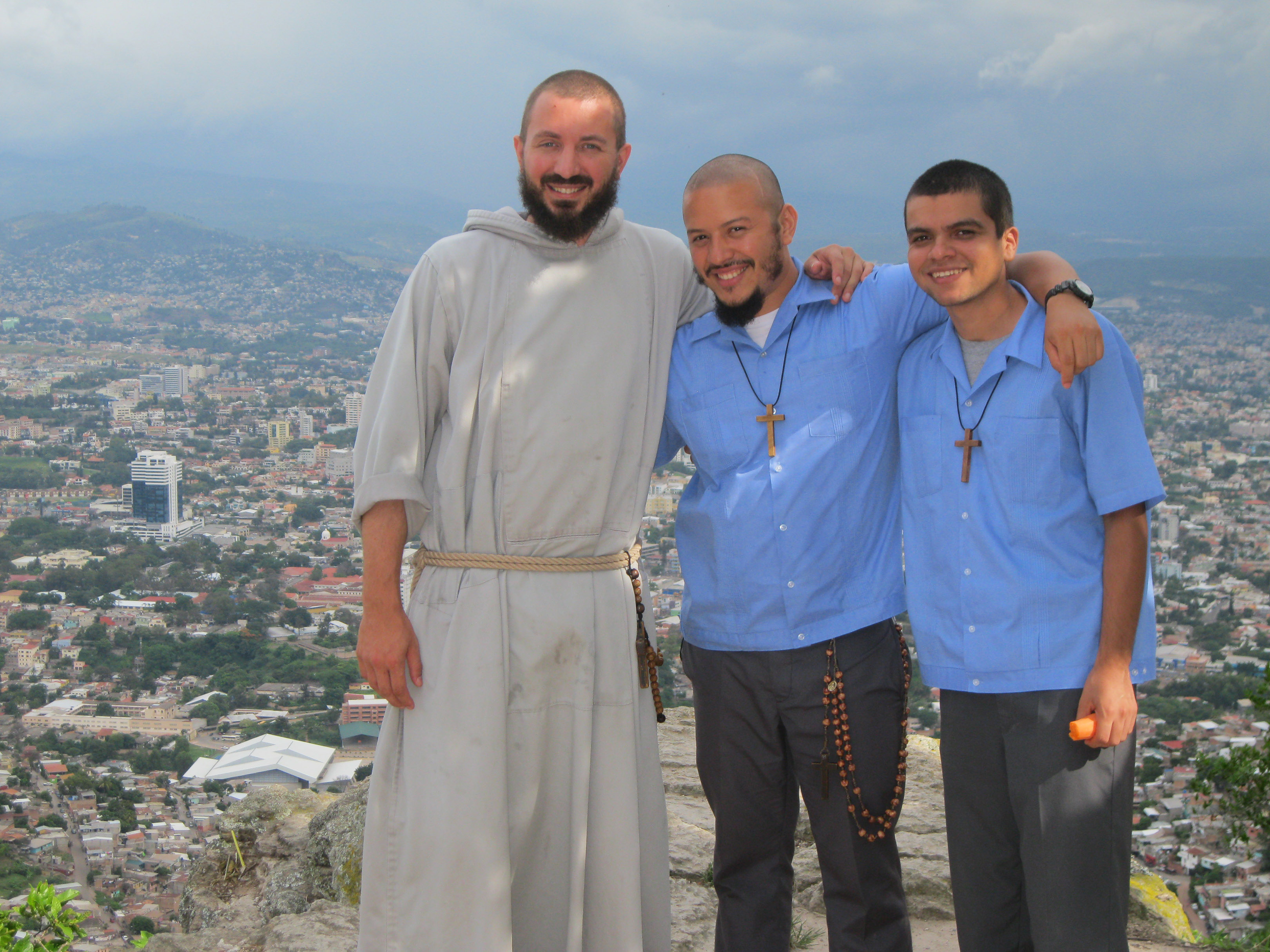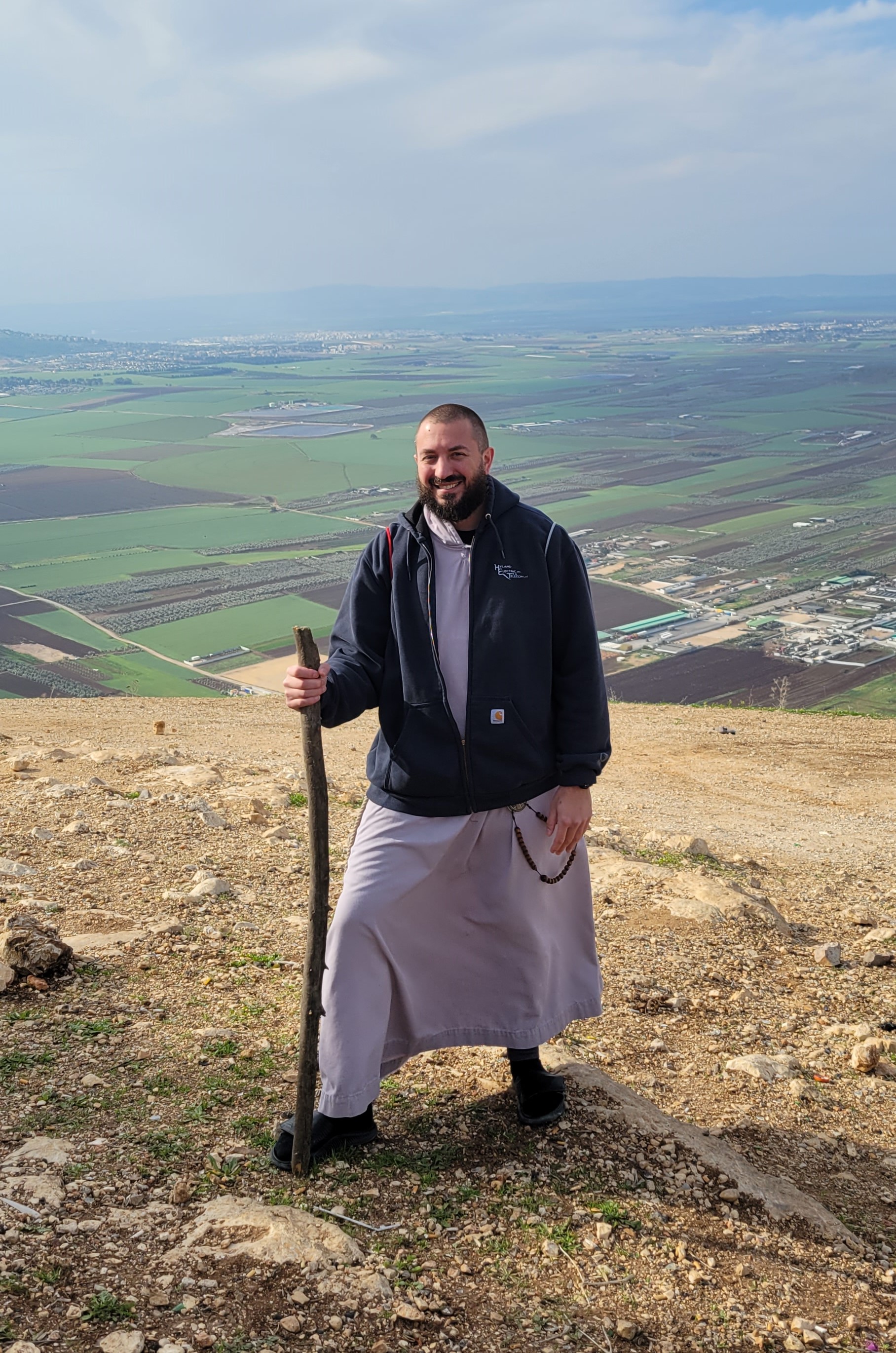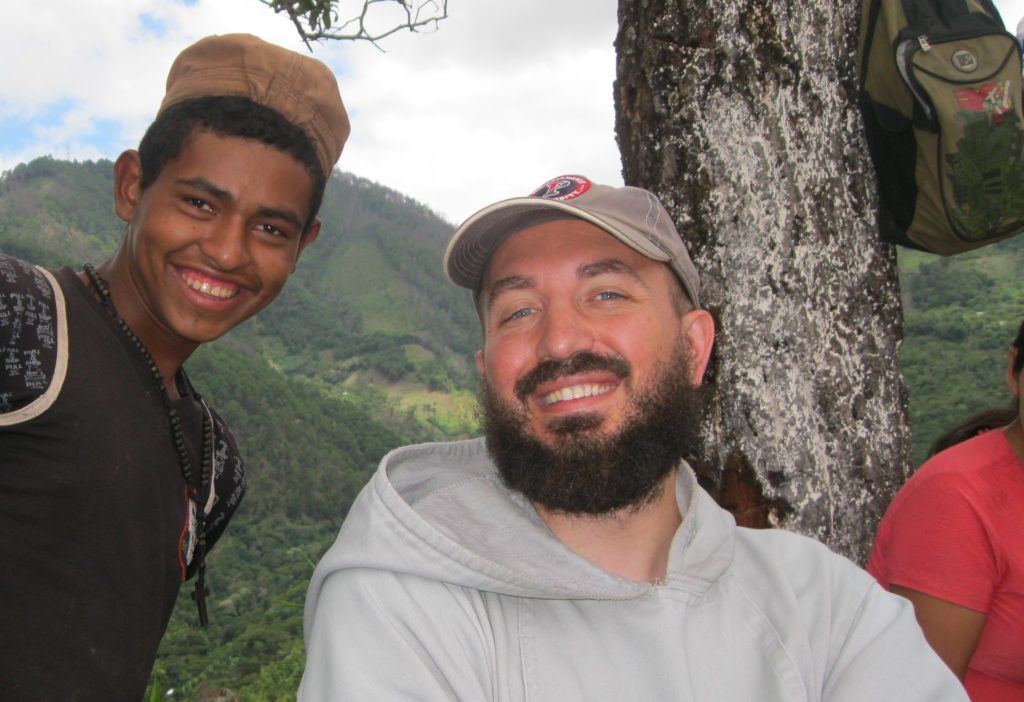It’s not every day that you hear the term “prenatal justice” associated with hands-on work with the poor.
For Brother Michelangelo Best, a Franciscan Friar of the Renewal based in Yonkers, New York, what unites the two is a personal calling from God that he says was powerful enough to help him renounce the life of a professional poker player.
Since then, his vocation has led him to a life of prayer, sidewalk counseling, home visits, post-abortive retreats, medical missions in Central America, and distributing food to struggling families.
As pro-lifers in the United States look for direction after the fall of Roe v. Wade last year, Brother Michelangelo shared with Angelus his story and perspective on where to go from here.
You have quite the conversion story. Can you tell us a bit about the person you were and then the person you become?
Returning to the Catholic faith was quite dramatic. My friends would tell me that I was “living the dream” as a professional poker player who had extra time, money, and freedom to really enjoy life.
Living in South Florida, I was very much absorbed in the Palm Beach lifestyle. Designer clothes, flashy cars, expensive dinners, and going to the best nightclubs were my highest priorities. This pleasure-centered and reckless lifestyle inevitably landed me in some precarious situations. It was in one of these situations that, by God’s grace, my eyes were opened to see the evil of what I was involved in. The shock of this shook me to the core and I was not sure what to do. I ended up in a Church where I prayed for the first time in years. By the end of this time of prayer I knew, in a way that I never had before, that God and the Church were real; it was an experience that would change my life forever.
I now felt at home in the silence of eucharistic adoration and no longer in the flashing lights and booming bass of the nightclub. My set of friends went from being criminals and drug dealers to Church ladies and pro-life volunteers. I was convinced that I should live for others and not just for myself.

And then what drew you to join the Franciscan Friars of the Renewal?
In poker, the professional players look to get into games with a “fish,” a new or average player who thinks he is playing the same game as everyone else. This, however, is far from true; the “fish” simply does not realize how much he doesn’t know. The pros, on the other hand, understand the game, its logic, nuances, and psychological dimension at a depth that the other players are completely oblivious of.
I was a “fish” in life for so long. During my “conversion experience,” however, I realized that life had an incredible depth of which I had been unaware. I now became aware of the sacredness of human life, that this life was meant for us to come to know God, and that our time here is precious. I was convinced that there was a great battle for souls being waged and that many were running toward the cliff of perdition, oblivious of the danger.
Realizing that my newly acquired faith was a complete gift, and that this gift came with responsibilities, I was convinced that this truth needed to be shown to others. Within the first hour of visiting the Friars of the Renewal I knew (again, through a grace) that this was home.
I was deeply moved by the Friars’ charism of evangelization and hands-on work with the poor. Additionally, these two pillars of the charism came together in what I believed to be a most worthy apostolate: prenatal justice. I trusted that the many ministries of this Franciscan Order, rooted in prayer and fraternity, would allow God to use me to bring others to the Truth.
This is quite the beautiful vision: directly combining work for prenatal justice with a direct service to the poor. Do you ever get criticism from one “side” or the other? Perhaps from pro-lifers who insist that abortion is the preeminent issue and we ought to be focusing our energies there? Or more social justice-minded people who say we need to follow Pope Francis and focus more on the poor?
Personally, the only criticism that I hear [is] from people who come to protest our times of prayer in front of abortion mills. These verbal and physical assaults are usually completely irrational and not worth repeating. Ironically, instead of disrupting our prayer these people motivate us to pray more. I wonder if these protesters know how much we are now praying for them?
But let me try to address your question. The members of the Church who engage in charitable works can be likened to a group of paramedics who arrive on the scene of a dying person. The dying person represents humanity as a whole, who as I see it, is currently far from God and, therefore, spiritually dying.
This person is suffering from many wounds, some are minor, some serious, and some fatal if not attended to. The paramedics must act as a team to keep this person alive. They have complimentary but specific tasks: one has a hand on the pulse, one is applying pressure to the most serious wounds, one is listening to the breathing. Discussion is helpful in determining the best course of action, however, if they become divided and no longer work together, the dying person will bear the consequences.

Charity, love of God and neighbor, is the key to engage in any corporal or spiritual works of mercy. This love impels us to bring souls to God in a variety of ways. Where one should focus will depend on one’s state in life, the gifts God has given them, and their personal circumstances.
We need to act as a team — as a Church — to address the many and varied wounds of humanity. However, if the most serious wounds are not attended to, the patient will inevitably die. Abortion, because of the nature of what it is, and the physical, psychological, emotional, and spiritual devastation that is caused for all involved, is a gunshot wound to the chest of humanity.
What, if anything, do you think this vision could mean for the pro-life movement at this particular moment in time? Here I have in mind, in particular, our post-Roe era as a result of the Supreme Court’s Dobbs decision.
Changing legislation is a step, but what is needed is changing people’s hearts. As I previously mentioned, the goal is the salvation of souls, and this is brought about when people come to know God and the truth of reality. This Truth changes the way we think, and our thinking determines how we act. Therefore, the real solution is ultimately not a political one but is Jesus Christ.
In many places abortion is still legal and even being expanded as a reaction to the Dobbs decision. Moreover, there are a number of other attacks against the dignity of the human person, the sanctity of life, and the family. These battles must be fought through prayer, virtue, humility, and redemptive suffering.
Connected to this, we must be sure that we are consistent and constant in all areas of social justice, from resisting euthanasia to buying a sandwich for a homeless person. We must uphold the dignity of all human lives from conception to natural death.

